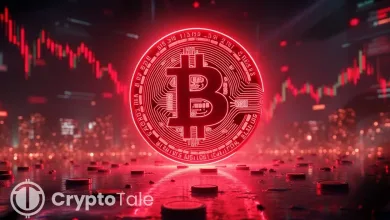American Bitcoin Eyes Asia: Strategic Expansion or Political Power Play?

Key Insights:
- American Bitcoin plans acquisitions in Japan and Hong Kong to accelerate its Bitcoin reserves.
- Corporate treasuries now control almost one million BTC valued at more than $114 billion.
- Expansion into Asia blurs business ambition with wider U.S. political influence in the region.
American Bitcoin, a crypto mining venture linked to Donald Trump Jr. and Eric Trump, is setting its sights on Asia with a plan to expand its Bitcoin holdings. According to the Financial Times, the company is considering acquiring a publicly listed firm in Japan and potentially another in Hong Kong to accelerate its accumulation strategy.
The move closely mirrors the blueprint pioneered by Michael Saylor’s Strategy, which has amassed more than 628,000 BTC worth nearly $74 billion. American Bitcoin currently holds just 215 BTC, but the momentum is building.
In June, the firm raised $200 million to scale its treasury and mining operations, signaling its intent to catch up with heavyweight players. Executives describe the ambition as nothing less than building “the strongest and most efficient Bitcoin accumulation platform in the world.”
Although no deals have been finalized, the push highlights how Bitcoin treasury strategies are reshaping corporate balance sheets worldwide. Public companies now collectively hold close to one million Bitcoin, worth more than $114 billion, according to BitcoinTreasuries.NET.
Source: BitcoinTreasuries.Net
With global currencies under pressure, Bitcoin’s capped supply of 21 million remains a powerful draw for institutional investors building long-term reserves.
Trump’s Bitcoin Bet: Why Asia May Be the Real Prize
The Trump-backed American Bitcoin made its public debut in May through a merger with Nasdaq-listed miner Gryphon Digital Mining. Its recent acquisition strategy, which targets Asian acquisitions, highlights a careful selection of crypto-progressive and geopolitically strategic geographic areas.
Japan, for example, has been an experimental arena of digital asset regulations, and its Financial Services Agency has recently proposed changes, such as a fixed 20 percent tax on crypto profits. The change from a previous 55% levy is expected to boost participation while laying the groundwork for instruments like Bitcoin ETFs on Japanese exchanges.
In the meantime, Hong Kong has been positioning itself as a gateway to regional capital. Its Securities and Futures Commission has raised custody requirements on licensed trading platforms so that they have strong cold-wallet infrastructure to protect investors against the type of hack that afflicted exchanges abroad.
In parallel, the Legislative Council passed the “Stablecoins Bill,” allowing institutions to apply for issuance licenses by year’s end. Already, more than forty firms have expressed interest. These shifts highlight why Asia has become an ideal place for expansion.
Trump’s Crypto Push
The potential entry of the Trump-backed venture into Asia seems to be at the crossroads of both accumulation and influence. On the one hand, the acquisition strategy resembles that of the existing Bitcoin treasuries, where the listed companies are used to accumulate reserves on a large scale.
However, the participation of the Trump family and the timing of warmer U.S. crypto policies point to a new level. By planting an American-controlled entity inside Asia’s regulated markets, the effort signals an attempt to tie Bitcoin’s growth in the region to U.S. capital and leadership.
This dual-purpose approach goes in line with the greater crypto plan of the Trump family, which extends beyond the mining business. Ranging from Truth Social proposing to raise billions to build a Bitcoin treasury to WLFI issuing stablecoins, the family has placed itself at the epicenter of a strategic digital asset initiative.




